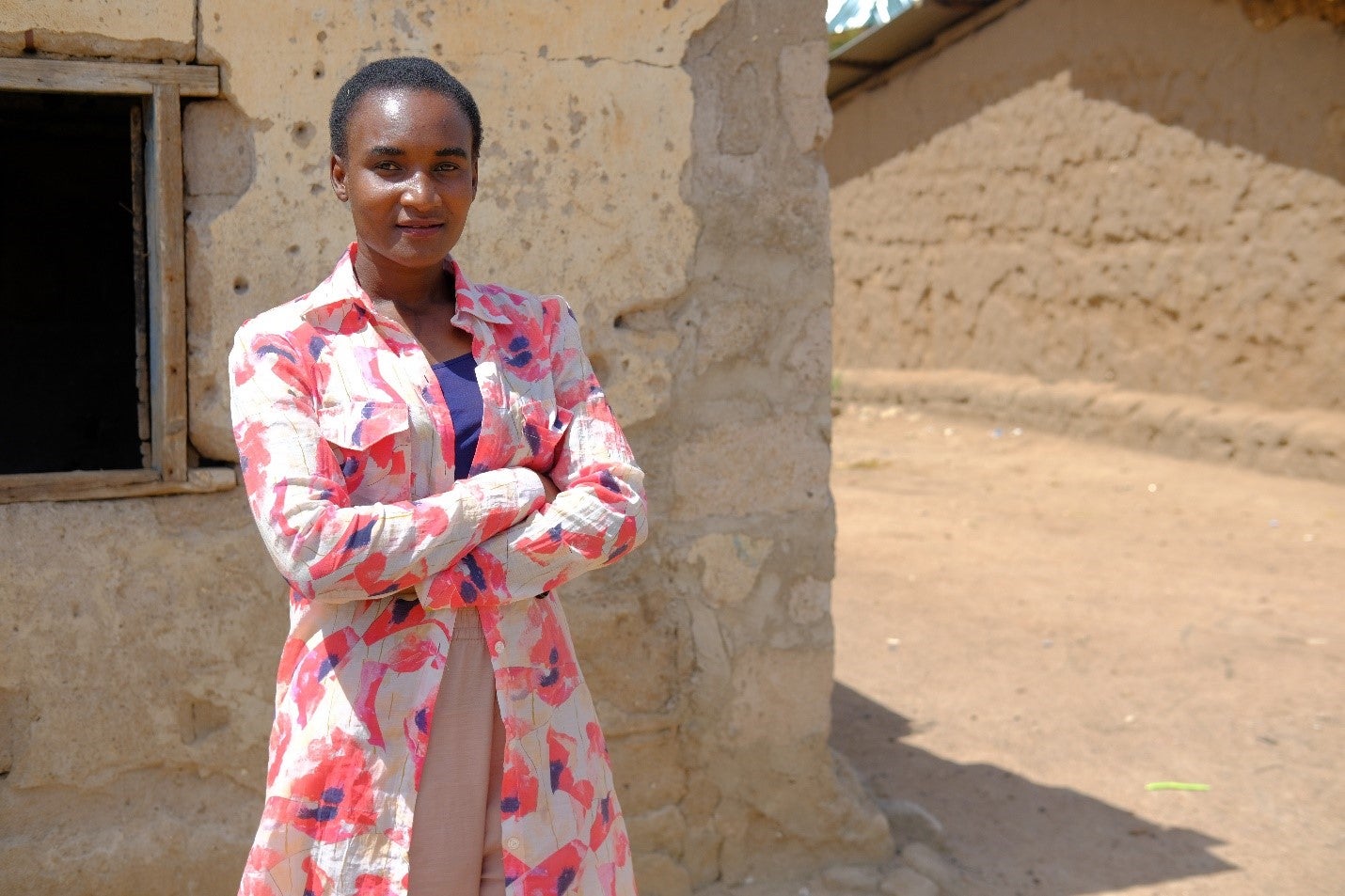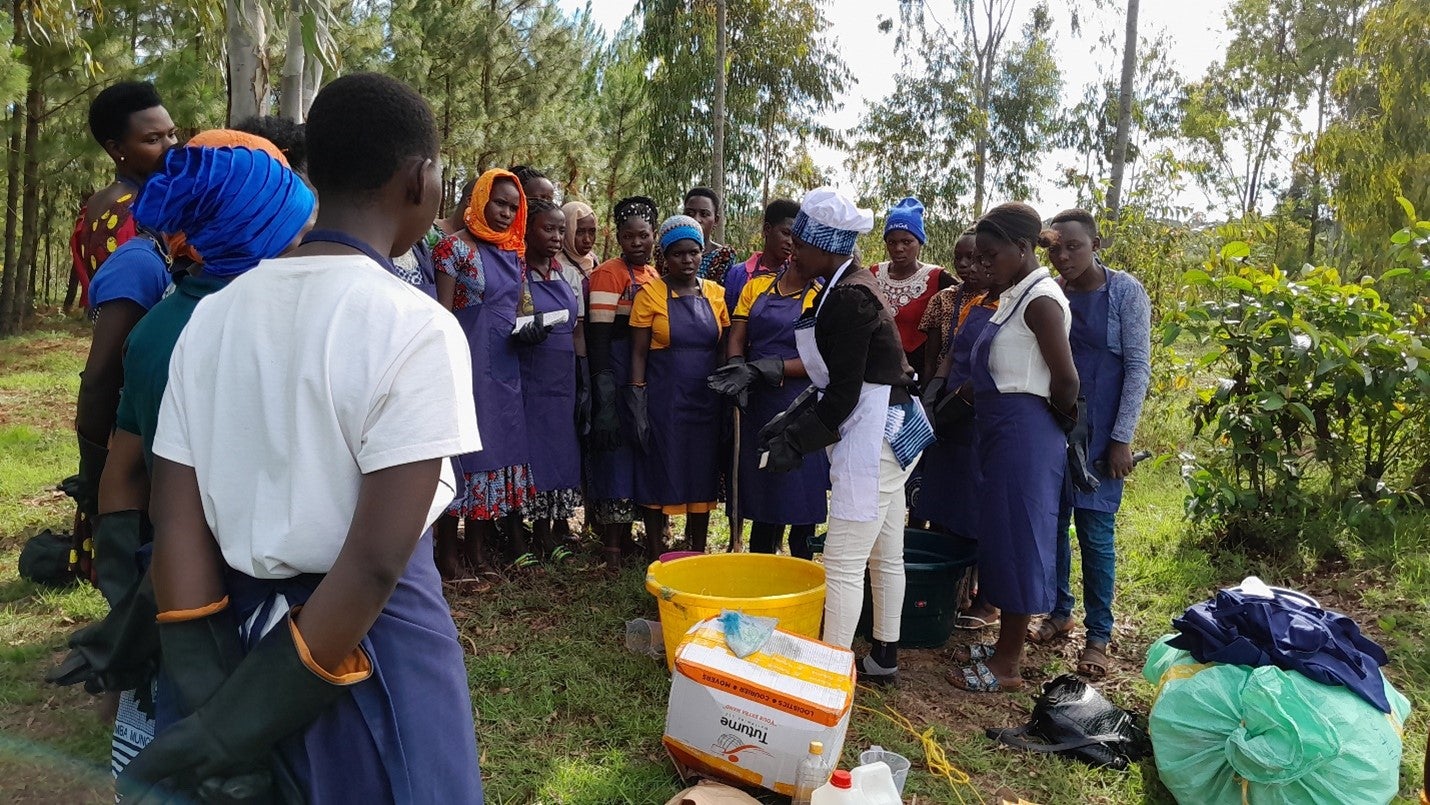In the words of Maria Isdory: “Women are now recognized not only as caregivers but changemakers, where their financial independence is a concrete reality.”
Date:

Maria Isdory is a 29-year-old entrepreneur from Tabora region in western Tanzania. Through the partnership between UN Women and the Tanzania Women’s Chamber of Commerce (TWCC) to promote women entrepreneurs in cross-border trade, she is one of many who have seen a significant increase in income. Maria has not only gained the skills and confidence to run her business but also to empower others.
“I came from a family of modest means. Growing up, owning my own business was something I never imagined possible. My mother tirelessly juggled several jobs to support me and my siblings. From being a local food vendor, engaging in casual labour, to charcoal burning, she ensured we had what we needed, even if it was minimal. I eventually went to college to study primary school teaching.
It was when I got my diploma that I started thinking about venturing into entrepreneurship, so I could make some extra money to support my family. It was scary. I didn't know what business to do, where to start, or where to get the capital. I didn’t even feel old enough to be an entrepreneur.
I ended up working for a street food vendor, moving food from 6 am to 10 pm, earning less than a dollar per day. After a year, I decided to take a bold step. At this time, my mother had developed lung complications from many years of charcoal burning. The responsibility to support her and my siblings fell on my shoulders. So, I moved back home and learned how to make soap from a family friend.
My first batch was a total failure. I couldn’t sell it, as liquid soap was not a common product in the village. But I didn't give up. I expanded my skills to include making bar soap, baskets, tie-and-dye batik, bead necklaces, and carpets, and seized every training opportunity that came my way.
My turning point came four months into my entrepreneurship journey when I joined the Tanzania Women's Chamber of Commerce (TWCC) and participated in cross-border training supported by UN Women. We were trained on starting and managing a business, manufacturing, market research, the African Continental Free Trade Area (AfCFTA) cross-border trade, barcode usage, safe chemical handling, business regulations in the free market, producing quality products, and product valuation. We were also connected with various financial institutions that offered low-interest loans to help start and grow our businesses.
Through the UN Women - TWCC training, we also learned how to transform agricultural crops into products and find markets for the products. This has empowered many women and youth, enabling them to earn and become self-reliant.
I finally began to see some success as an entrepreneur and a small business owner, earning enough to support my mother, pay for my siblings' school expenses and buy land. But I didn’t stop there, I was determined to pass on this knowledge, especially to women, so they can also become successful. As an entrepreneurship educator, I am happy to share my skills and knowledge with hundreds, including women and youth, helping them create products and earn a living. Now, women in my community are not only being recognized as caregivers, but as changemakers, where their financial independence is a concrete reality.

Having gained knowledge about the AfCFTA, I now have a great understanding of its legal and procedural frameworks. This has enlightened me on the opportunities it presents, particularly in accessing larger markets, and ways to improve my products and services to meet continental standards. I look forward to expanding the reach of my products beyond Tanzania's borders, venturing into new countries and diverse markets.”